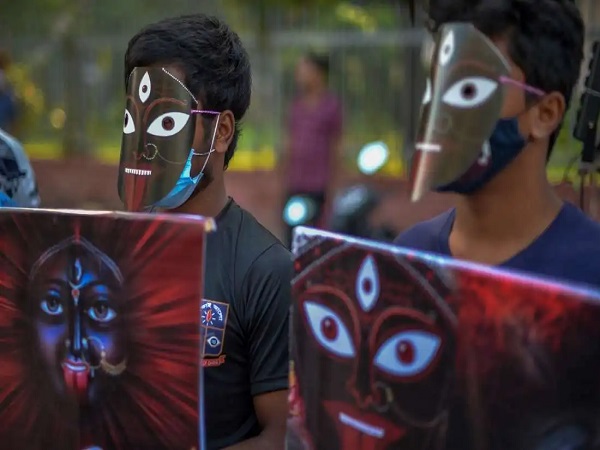An interfaith group and activists have slammed a Bangladesh court's "unjust" jailing of a Hindu man for supposedly insulting Islam through a social media post that triggered an attack on his village in 2017.
A cyber tribunal in northern Rangpur district, about 300 kilometers from the South Asian nation's capital Dhaka, sentenced Titu Roy to 10 years imprisonment and a 50,000 taka (US$466) fine on May 23, in a case conducted under the now-defunct Information and Communication Technology (ICT) Act, said Ruhul Amin, the public prosecutor at the tribunal.
The ICT Act was replaced with the controversial Digital Security Act in 2018, whose sweeping provisions to prevent blasphemy were criticized by the US International Religious Freedom Report released earlier this month.
In the post, Roy is reported to have insulted the kaaba, a Muslim holy site in Mecca, and the Prophet Muhammad.
The cyber tribunal handed down the sentence after hearing 17 witnesses, said Amin, adding that two other cases filed over the attack on the Hindu village in Thakurpara, Rangpur, in November 2017 were still pending.
However, interfaith groups believe the accusations against Roy were likely false.
"Roy is an illiterate for whom it was neither possible to maintain a Facebook account or type a post," said Rana Dasgupta, general secretary of the Bangladesh Hindu Buddhist Christian Unity Council.
After Roy's alleged post went viral, around 20,000 Muslims attacked Thakurpara. The final call to attack the village was made after Friday prayers.
Rana said the attackers set at least 30 houses ablaze, looted the village comprising mainly Hindu farmers or wage earners and destroyed temples. Roy's home was also burned.
Police arrested Roy in Fatulla, in Narayanganj, about 30 km from Dhaka, and nearly 500 people were named on the charge sheet.
"We are stunned. The victim gets punished while thousands of attackers involved in arson and looting of an entire Hindu neighborhood are still not punished," said Monindra Kumar Nath, joint secretary of the Bangladesh Hindu Buddhist Christian Unity Council.
"Roy's conviction raises many questions to which we have no answer," said Monindra.
Human rights activists have described Roy's conviction as a "cheap tactic" employed by the ruling Awami League to please the majority Muslim population in the country ahead of polls in January 2024.
"The conviction is a reminder of the abuse of the Digital Security Act and also continued repression of minorities," said Kajal Bandyopadhyay, a rights activist.
"A sense of Islamist supremacy is evident in all the actions of the leaders of the country and its majority Muslim population," he noted.
Meanwhile, the cases involving the attack on the Hindu village are ongoing.
"The accused in the two other cases are on bail," public prosecutor Amin said, adding that he did not know how long it might take for these trials to end.
Newspaper reports said these cases, filed in the aftermath of the arson attack on the Hindu village, included many fictitious names. So, police are not in a position to zero in on the perpetrators.
Police have also named as suspects activists of Bangladesh Nationalist Party and Jamaat-e-Islami -- two major opponents of the Awami League government.
Source: UCA News0 COMMENTS



